Your Jeep Grand Cherokee could be shaking due to wheel misalignment or worn-out suspension components. These issues can cause vibrations, especially at certain speeds or during braking.
If you’ve noticed your Jeep Grand Cherokee shaking, it’s essential to address this problem promptly to ensure your safety on the road. Shaking can indicate various underlying issues, such as unbalanced tires, worn-out brake components, or suspension problems. Ignoring these symptoms can lead to further damage and compromise your vehicle’s performance.
We’ll explore the potential reasons behind your Jeep Grand Cherokee’s shaking and provide insights on how to resolve the issue effectively. Understanding the root cause of the shaking will help you take the necessary steps to restore your vehicle’s smooth and stable driving experience.
Common Causes Of Jeep Grand Cherokee Shaking
A. Tire Issues
If you notice your Jeep Grand Cherokee shaking, there could be a variety of reasons behind it. One common cause of shaking is tire issues. The condition of your tires can greatly affect the stability and smoothness of your ride. In this section, we will explore some of the common tire-related problems that can lead to shaky driving experiences.
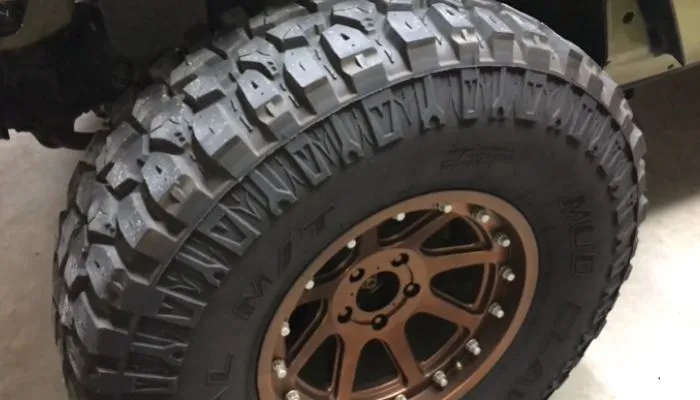
1. Uneven Tire Wear
Uneven tire wear is a prevalent issue that can result in your Jeep Grand Cherokee shaking. When tires wear unevenly, it can lead to imbalances and cause the vehicle to vibrate or shake. There are a few reasons why uneven tire wear might occur, including:
- Poor wheel alignment
- Incorrect tire pressure
- Worn suspension components
It’s essential to regularly inspect your tires for signs of uneven wear such as feathering, cupping, or excessive wear on one side. Regular tire rotation and alignment checks can help prevent this problem and ensure even tire wear.
2. Improper Tire Balance
Tire balance issues can also be a cause of shaking in your Jeep Grand Cherokee. When tires are not balanced correctly, it can result in an uneven distribution of weight and lead to vibrations during driving. Some factors that can cause tire imbalance include:
- Lost wheel weights
- Tire changes or replacements
- Poor tire installation
If you notice persistent shaking, especially at high speeds, it may be a sign of improper tire balance. It is crucial to have your tires balanced regularly to ensure a smooth and comfortable driving experience.
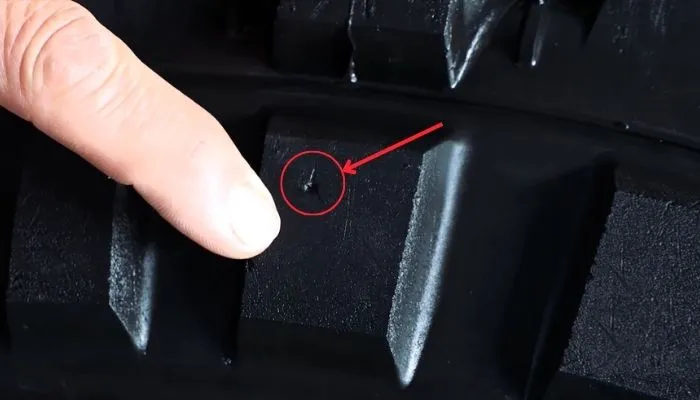
3. Tire Damage (bulges, Punctures)
Tire damage, such as bulges or punctures, can also contribute to the shaking sensation in your Jeep Grand Cherokee. When a tire is damaged, it can lead to an imbalance that can cause vibrations and affect the overall stability of your vehicle. Some common causes of tire damage include:
- Potholes or road debris
- Overloading the vehicle
- Driving at excessive speeds
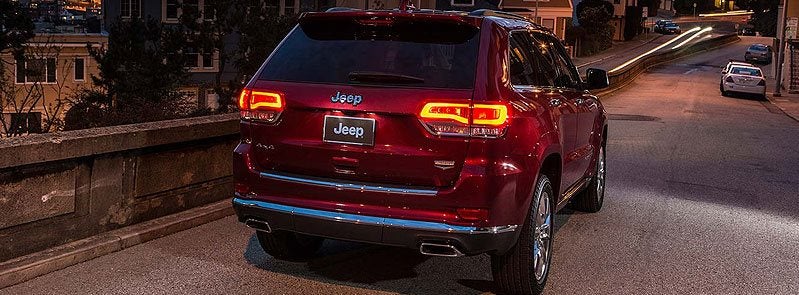
Credit: www.chryslerdodgejeepramofcolumbia.net
B. Engine Issues
When it comes to the common causes of Jeep Grand Cherokee shaking, engine issues play a significant role. Various factors can contribute to an engine-related problem, resulting in vibrations and an unpleasant driving experience.
In this section, we will explore some of the most frequent engine issues that can cause your Jeep Grand Cherokee to shake. By addressing these problems promptly, you can ensure a smoother and safer ride.
1. Misfiring Engine (rough Idle, Lack Of Power)
A misfiring engine is a common culprit behind a shaking Jeep Grand Cherokee. When the engine misfires, it fails to burn the fuel properly, leading to a rough idle and a lack of power. This can cause noticeable vibrations throughout the vehicle. Some indicators of a misfiring engine include:
- Rough idling
- Engine hesitation
- Reduced acceleration
- Loss of power
If you notice any of these signs, it’s important to address the issue promptly. A misfiring engine can result from various causes, such as:
- Worn or damaged spark plugs
- Faulty ignition coils
- Problems with the fuel system
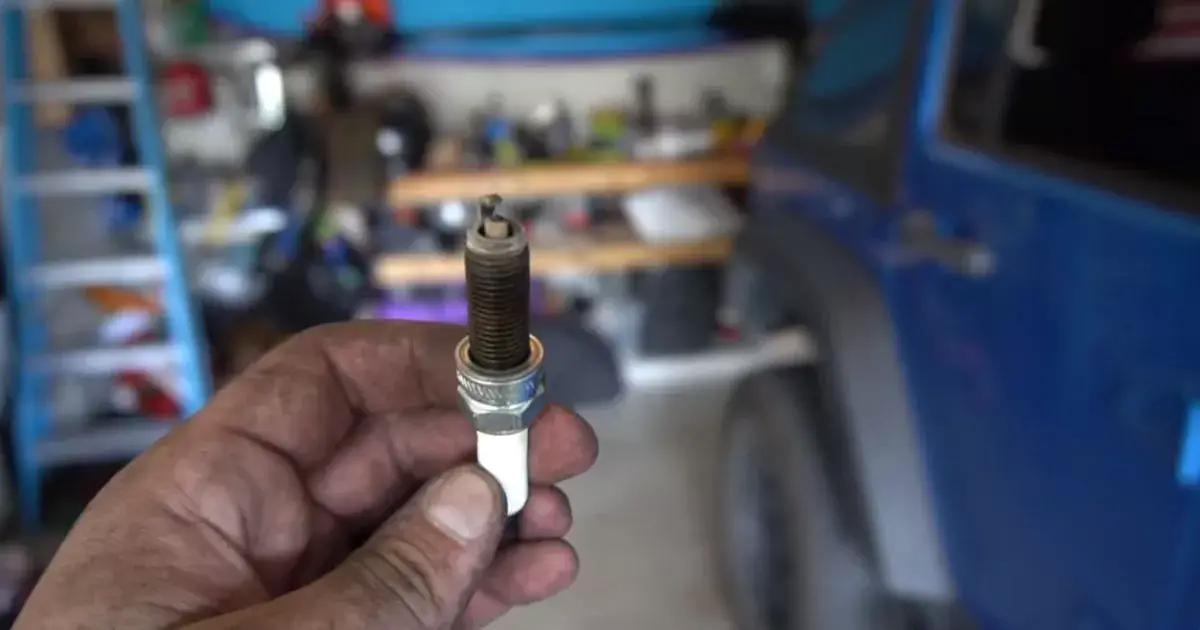
2. Faulty Spark Plugs Or Wires
Faulty spark plugs or wires can also contribute to the shaking of your Jeep Grand Cherokee. Spark plugs play a crucial role in igniting the fuel in the combustion chamber, and damaged or worn-out spark plugs can hinder this process. Similarly, worn or damaged spark plug wires can disrupt the flow of electricity, leading to misfires and vibrations. If you suspect faulty spark plugs or wires, some signs to watch out for include:
- Poor engine performance
- Difficulty starting the engine
- Increased fuel consumption
- Engine misfires
To address this issue, it is recommended to regularly inspect and replace spark plugs and wires according to your vehicle’s maintenance schedule.
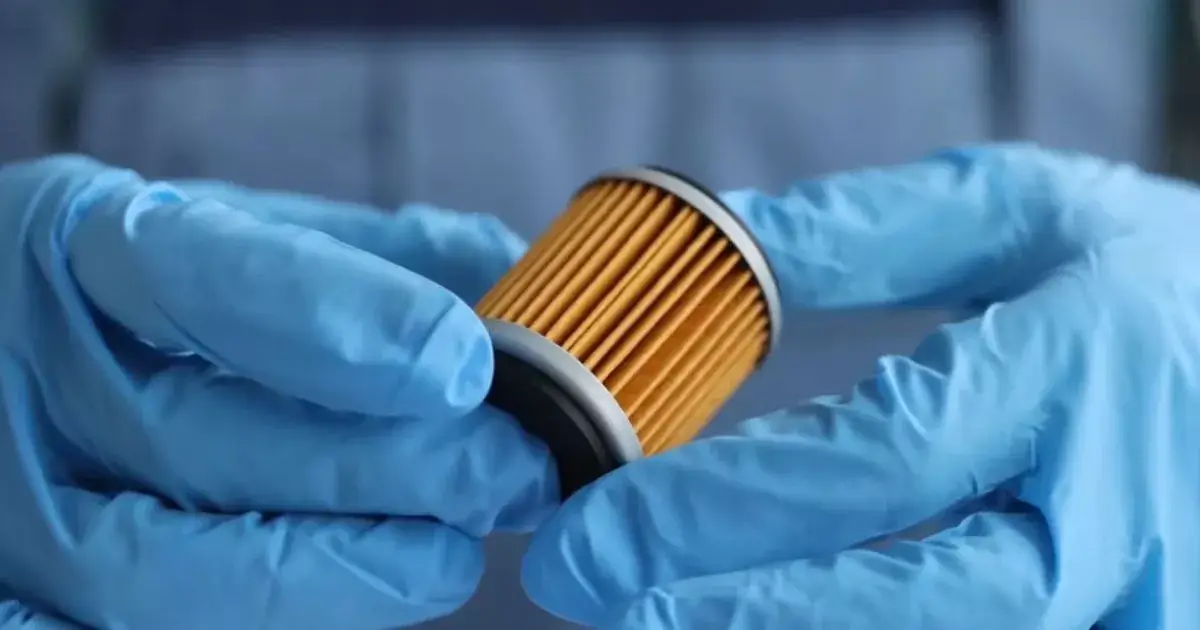
3. Dirty Air Filter
Another potential cause of a shaking Jeep Grand Cherokee is a dirty air filter. Over time, the air filter can become clogged with dirt, dust, and debris from the road. This can restrict the airflow to the engine, resulting in an imbalance and engine vibrations. If you notice any of the following signs, it may be time to clean or replace your air filter:
- Reduced engine power
- Poor fuel economy
- Black smoke from the exhaust
- Unusual engine sounds
Regularly checking and cleaning or replacing your air filter can help maintain optimal engine performance and prevent unnecessary shaking.
4. Engine Mount Problems
Engine mount problems can also contribute to the shaking of your Jeep Grand Cherokee. The engine mounts are responsible for securing the engine to the frame of the vehicle, reducing vibrations and ensuring a smooth ride.
However, over time, these mounts can wear out or become damaged, leading to increased engine movement and noticeable shaking. Signs of engine mount problems include:
- Increased engine noise
- Vibrations at idle or when accelerating
- Visible cracks or damage to the mounts
- Misalignment of the engine
C. Suspension Issues
The suspension system of your Jeep Grand Cherokee plays a critical role in providing a smooth and stable ride. When experiencing shaking or vibrations, it’s essential to identify the underlying issues to ensure optimal safety and performance. Understanding the common causes of Jeep Grand Cherokee shaking related to suspension issues will help you address the problem effectively.
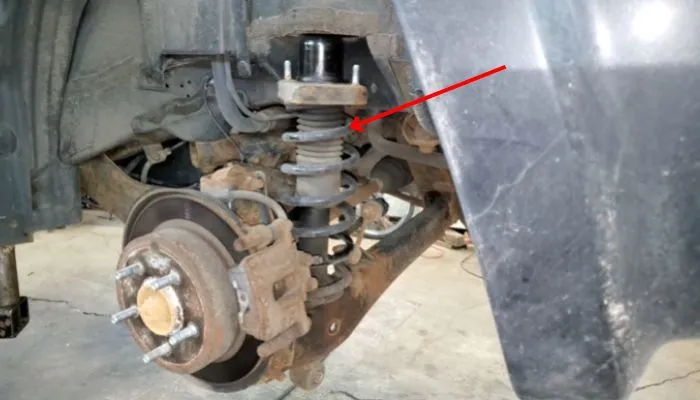
1. Worn Out Shock Absorbers Or Struts
Worn-out shock absorbers or struts can significantly contribute to the shaking of your Jeep Grand Cherokee. These components are responsible for dampening the impact of road irregularities, ensuring a comfortable and stable ride. Over time, wear and tear of these parts can lead to increased vibrations and an overall degraded driving experience.
Regular inspection and timely replacement of shock absorbers and struts are crucial to maintaining the smooth operation of your vehicle’s suspension system.
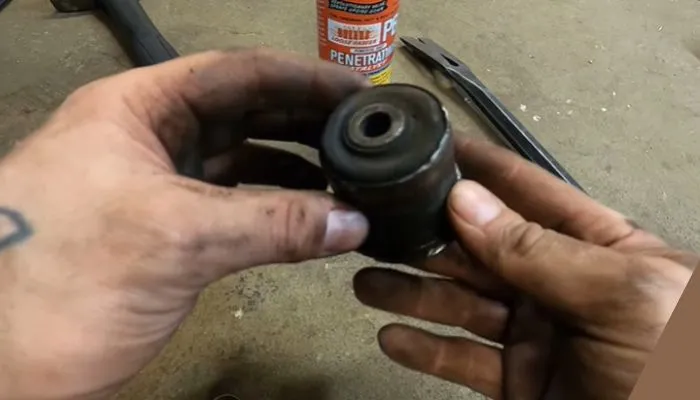
2. Faulty Control Arm Bushings
Faulty control arm bushings are another common culprit behind the shaking of your Jeep Grand Cherokee. These bushings play a crucial role in connecting the control arms to the vehicle’s chassis, absorbing road shocks and providing flexibility during steering and suspension movements.
When these bushings are worn or damaged, they can cause excessive movement and play in the suspension components, resulting in unwanted vibrations and instability. It’s essential to inspect and replace faulty control arm bushings to restore the integrity of your vehicle’s suspension system.
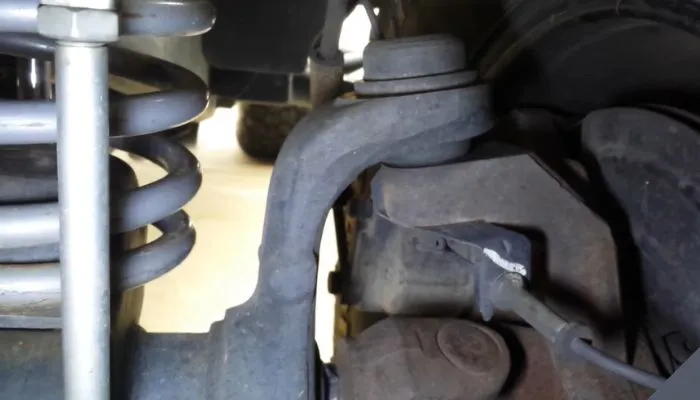
3. Loose Ball Joints
Loose ball joints can also contribute to the shaking and instability of your Jeep Grand Cherokee. These components serve as the pivot points between the suspension and the wheels, enabling smooth movement and alignment adjustments.
When ball joints become loose or worn, they can lead to uneven tire wear, steering instability, and noticeable vibrations. Regular inspection and maintenance of ball joints are crucial to ensuring a safe and smooth driving experience.
Also Read: Why Does My Jeep Patriot Shake
D. Brake System Issues
When your Jeep Grand Cherokee is experiencing shaking, it’s essential to investigate the potential brake system issues that may be causing this problem.
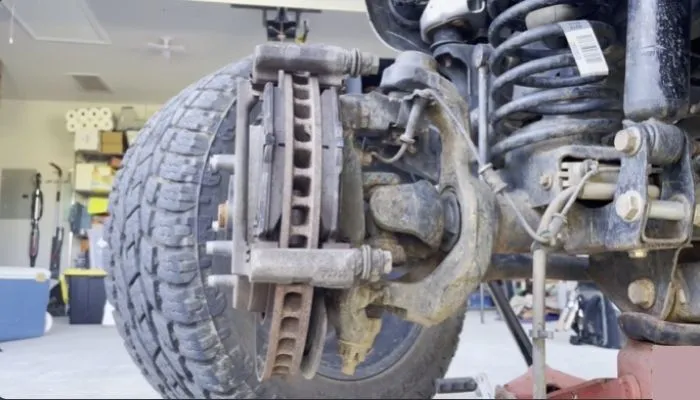
1. Warped Brake Rotors
Warped brake rotors on your Jeep Grand Cherokee can lead to shaking when braking. When the rotors become warped, they can no longer provide a smooth surface for the brake pads to make contact with, resulting in vibrations and shaking.
2. Worn Brake Pads
Worn brake pads can also contribute to the shaking of your Jeep Grand Cherokee. As the pads wear down, they lose their ability to provide consistent friction against the rotors, leading to uneven braking and shaking sensations.
3. Brake Caliper Problems
Issues with the brake calipers, such as sticking or uneven pressure, can cause the brakes to engage unevenly, resulting in shaking and vibrations during braking.
E. Drivetrain Issues
Is your Jeep Grand Cherokee shaking while driving? It can be quite alarming and can lead to discomfort and safety concerns. One possible reason for this shaking is drivetrain issues.
In this section, we will explore two common causes of Jeep Grand Cherokee shaking related to the drivetrain: worn out U-joints and faulty driveshaft.
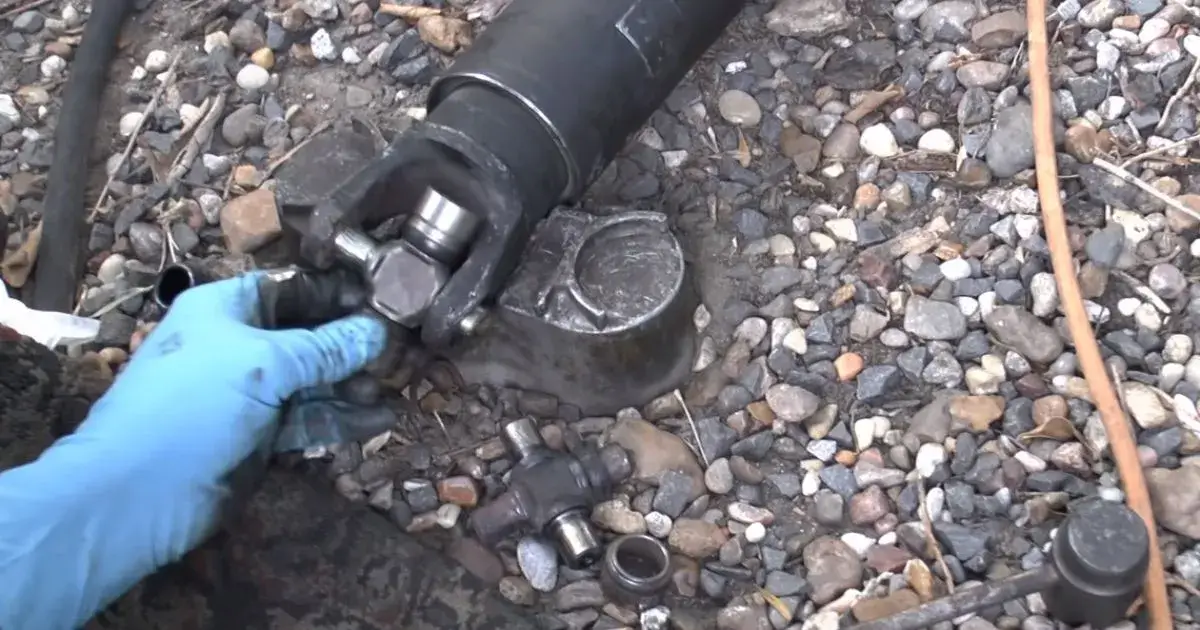
1. Worn Out U-joints
If you notice a persistent shaking in your Jeep Grand Cherokee, worn out U-joints could be the culprit. U-joints, also known as universal joints, are crucial components that connect the driveshaft to the transmission and differential.
Over time, these joints can become worn, leading to excessive play and vibration. This vibration can be felt throughout the vehicle, especially during acceleration or at higher speeds.
Replacing worn out U-joints is essential to restore the smooth operation of your drivetrain. Regular maintenance and inspections can help identify and address worn out U-joints before they cause further damage or put your safety at risk.
2. Faulty Driveshaft
In some cases, a faulty driveshaft can be the reason behind your Jeep Grand Cherokee’s shaking. The driveshaft is responsible for transmitting torque from the transmission to the wheels. If the driveshaft becomes damaged or unbalanced, it can result in an uneven distribution of power, leading to vibrations and shaking sensations.
Several factors can contribute to a faulty driveshaft, including worn-out or damaged components, improper installation, or accidents. If you suspect a faulty driveshaft, it’s crucial to have it inspected and replaced by a qualified mechanic. Ignoring this issue can lead to further drivetrain damage and compromise the safety and performance of your Jeep Grand Cherokee.
Also Read: Why Does My Jeep Cherokee Shake
Signs And Symptoms Of Shaking
Experiencing an unsettling vibration or shaking in your Jeep Grand Cherokee can be both frustrating and concerning. However, identifying the signs and symptoms of shaking can help you pinpoint the underlying issue and take appropriate action.
In this section, we will explore three common signs of shaking: vibration at certain speeds, steering wheel shake, and engine-related vibrations.
1. Vibration At Certain Speeds
If you notice a distinct vibration occurring only at specific speeds, it could indicate an issue with your tires or wheels. Uneven tire wear or wheel imbalance can create an imbalance in your vehicle’s stability, resulting in shaking.
It is important to examine your tires for signs of uneven wear, bulges, or damage that may contribute to the vibration. Additionally, having your wheels balanced or aligned can help rectify the issue and restore a smoother ride.
Also Read: Why Does My Jeep Wrangler Shakes at 60 Mph
2. Steering Wheel Shake
A steering wheel shake is a common symptom of shaking in a Jeep Grand Cherokee. This occurs when you feel a tremor or vibration in the steering wheel while driving. One of the primary causes of steering wheel shake is an imbalanced or bent wheel.
When your wheels are not properly balanced, the distribution of weight can cause the steering wheel to vibrate. Having your wheels balanced and aligned can address this issue and provide a more stable driving experience.
3. Engine-related Vibrations
In some cases, the shaking in your Jeep Grand Cherokee may be linked to problems with the engine or its components. Worn-out engine mounts, damaged spark plugs, or a faulty fuel injector can all contribute to engine-related vibrations.
If you notice shaking that is accompanied by unusual engine noises, reduced power, or a rough idle, it is crucial to have your engine inspected by a qualified mechanic. They can diagnose the specific issue and recommend the necessary repairs to resolve the shaking problem.
Diagnostic Steps
A. Visual Inspection
When your Jeep Grand Cherokee is shaking, it’s important to conduct a visual inspection to identify potential causes of the issue. This step-by-step guide will help you diagnose the problem and address it effectively.
1. Checking Tire Condition And Pressure
First, start by visually inspecting your Jeep Grand Cherokee’s tires. Check for any visible signs of damage, such as punctures, cuts, or bulges. Additionally, ensure that the tire pressure is at the recommended level. Proper tire condition and pressure are crucial for a smooth and stable ride.
2. Inspecting Wheels For Visible Damage
Next, examine each wheel of your Jeep Grand Cherokee for any visible damage. Look for signs of bent rims, cracks, or missing lug nuts. Damaged wheels can cause vibrations and shaking, so it’s important to address these issues promptly.
3. Examining Suspension Components For Wear Or Damage
Lastly, thoroughly inspect the suspension components of your Jeep Grand Cherokee. Check for signs of wear or damage, such as worn-out bushings, loose connections, or leaking shocks or struts. Any issues with the suspension can lead to instability and shaking while driving.
Credit: www.quora.com
B. Road Test
If your Jeep Grand Cherokee is shaking, a diagnostic road test can help determine the cause. This step-by-step process involves carefully assessing the vehicle’s performance to identify and resolve the issue.
Additionally, listening for abnormal noises can provide valuable information. Let’s explore each step in detail:
1. Observing The Nature Of The Shaking
During your road test, pay attention to how the shaking varies with the speed of your Jeep Grand Cherokee. Take note if it becomes more pronounced at higher speeds or if it persists consistently regardless of the speed. This information can assist in identifying potential underlying causes such as tire imbalances, suspension issues, or problems with the driveshaft.
Also Read: Why Does My Jeep Patriot Jerk When I Accelerate
2. Testing Braking Performance
Another crucial aspect to evaluate during the road test is the braking performance of your Jeep Grand Cherokee. Gradually apply the brakes while driving and assess if the shaking intensifies or if there are any unusual vibrations. This observation can point towards problems with the brake rotors, brake pads, or the overall braking system.
3. Listening For Abnormal Noises
As you carry out the road test, keep your ears open for any abnormal noises coming from your Jeep Grand Cherokee. Unusual sounds, such as grinding, squealing, or clunking noises, can provide valuable clues about potential issues with the engine, transmission, or suspension components. Listening attentively will help you pinpoint the source of the shaking.
C. Using Diagnostic Tools
In the diagnostic steps of pinpointing the cause of your Jeep Grand Cherokee’s shaking, it is crucial to utilize advanced diagnostic tools. These tools help to accurately identify the root of the issue, giving you the necessary insights for effective troubleshooting and resolving the problem. Let’s delve into the diagnostic tools that play a key role in this process.
1. Wheel Alignment Machine
A wheel alignment machine is an indispensable tool for diagnosing shaking in your Jeep Grand Cherokee. By precisely measuring the angles of the wheels and their relationship to each other and the vehicle’s frame, this tool can detect misalignments that could be contributing to the shaking.
It provides accurate data that enables technicians to make necessary adjustments, ultimately restoring the vehicle’s stability and smooth operation.
2. Obd-ii Scanner For Engine Diagnostics
An OBD-II scanner is essential for conducting comprehensive engine diagnostics. By connecting to the onboard diagnostic system, this tool can retrieve error codes and valuable engine performance data.
This information helps identify potential issues within the engine that could be triggering the shaking in your Jeep Grand Cherokee. With precise diagnostic data at hand, technicians can efficiently pinpoint and address the underlying engine-related problems, restoring the vehicle’s smooth operation.
3. Brake Caliper Measurement Tools
Brake caliper measurement tools are crucial for evaluating the condition and performance of your vehicle’s brake calipers. Faulty or stuck calipers can lead to uneven braking and contribute to the shaking experienced in your Jeep Grand Cherokee.
These measurement tools aid in accurately assessing the caliper components, ensuring that they are functioning optimally. By identifying any irregularities in the brake calipers, technicians can take the necessary corrective measures to address the issue and restore the vehicle’s stability on the road.
Solutions And Repairs
A. Tire Related Solutions
If you’re experiencing shaking in your Jeep Grand Cherokee, it could be due to tire-related issues. Addressing these problems promptly can help improve the vehicle’s stability and ensure a smoother driving experience. Here are some tire-related solutions to consider:
1. Tire Balancing And Rotation
Proper tire balancing and rotation are crucial to minimize vibrations and shaking. Imbalanced or unevenly worn tires can cause the vehicle to shake, especially at higher speeds. Regular tire balancing and rotation can help distribute the wear evenly and promote a smoother ride.
Consult with a professional mechanic to assess the condition of your tires and perform the necessary balancing and rotation.
2. Tire Replacement If Necessary
If your tires are excessively worn or damaged, replacement may be necessary. Worn-out tires can lead to instability, increased shaking, and compromised traction. Inspect your tires for signs of wear, such as uneven tread wear or visible damage.
Consider replacing them with high-quality, properly-sized tires suitable for your Jeep Grand Cherokee to ensure optimal performance and safety.
3. Ensuring Proper Tire Pressure
Maintaining proper tire pressure is essential for vehicle stability and smooth operation. Check your tire pressure regularly and ensure it matches the manufacturer’s recommended levels.
Underinflated or overinflated tires can contribute to shaking and affect the overall handling of your Jeep Grand Cherokee. Use a reliable tire pressure gauge to measure the pressure and adjust it as needed to maintain optimal performance.
B. Wheel Alignment Corrections
1. Professional Wheel Alignment Service
If you are experiencing shaking in your Jeep Grand Cherokee, it is crucial to seek professional wheel alignment service as soon as possible. A professional technician with the right expertise and equipment can accurately diagnose the cause of the shaking and provide the appropriate solution to correct the wheel alignment.
By opting for a professional service, you can be assured that your Jeep will be in the hands of experts who understand the intricacies of wheel alignment and have access to state-of-the-art technology to accurately measure and adjust the alignment angles.
2. Adjustment Of Alignment Angles
One of the key steps in wheel alignment correction is the adjustment of alignment angles. Misaligned wheels can be a leading cause of shaking in your Jeep Grand Cherokee. A professional technician will use specialized tools to measure the current alignment angles of your wheels.
Based on these measurements, they will then make precise adjustments to the camber, caster, and toe angles of your vehicle. Correcting these angles ensures that the wheels are properly aligned and eliminates any shaking or vibration issues, providing you with a smoother and safer driving experience.
3. Replacement Of Damaged Components
In some cases, the shaking may be a result of damaged components in the wheel assembly of your Jeep Grand Cherokee. During the wheel alignment service, a professional technician will carefully inspect all the components, including the suspension system, steering linkage, and wheel bearings, to identify any damaged parts.
If any damaged components are found, they will be replaced to ensure that your wheels are properly aligned and functioning optimally. This replacement of damaged components is essential to prevent further damage and to maintain the overall performance and stability of your Jeep.
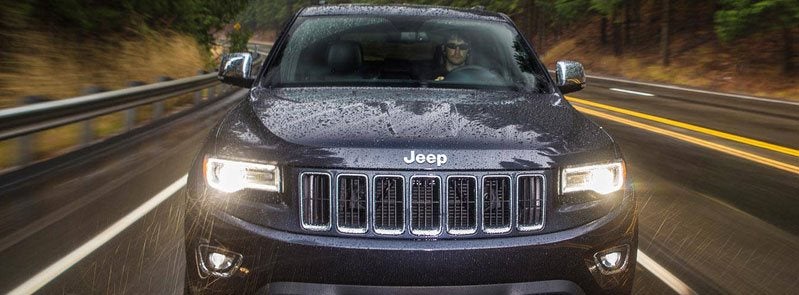
Credit: www.chryslerdodgejeepramofcolumbia.net
C. Suspension System Repairs
If your Jeep Grand Cherokee is shaking, addressing the suspension system is crucial. The suspension system plays a vital role in maintaining a smooth and comfortable ride, as well as ensuring proper handling and stability. Ignoring the issue could lead to further damage and compromise your safety on the road.
To resolve the shaking problem, various solutions and repairs may be necessary, including the replacement of shocks or struts, repairing or replacing damaged suspension parts, and even a suspension system overhaul if deemed necessary.
1. Replacement Of Shocks Or Struts
If your Jeep Grand Cherokee is shaking and the cause is identified as worn-out or damaged shocks or struts, it is crucial to replace them promptly. Shocks and struts are responsible for absorbing vibrations and impacts from the road, which helps maintain vehicle stability and control.
Signs of worn-out shocks or struts include excessive bouncing, uneven tire wear, increased braking distance, and a noticeable loss of stability. Replacing these components will not only eliminate the shaking but also enhance your Jeep’s overall ride quality and handling.
2. Repairing Or Replacing Damaged Suspension Parts
Identifying and repairing damaged suspension parts is another crucial step in resolving the shaking issue. Worn-out bushings, ball joints, control arms, or other components can lead to excessive play, causing vibrations and a shaky ride.
A thorough inspection by a trusted mechanic will help pinpoint any damaged parts that need repair or replacement. By addressing these issues, you can restore the suspension’s integrity and ensure a smoother and safer driving experience.
3. Suspension System Overhaul If Necessary
In some cases, a comprehensive suspension system overhaul may be necessary to fully address the shaking problem. Over time, various components of the suspension system, such as the springs, sway bar links, or steering components, can wear out and lose their effectiveness.
By opting for a complete suspension system overhaul, all worn-out or malfunctioning parts will be replaced, ensuring that your Jeep is operating at its best. This comprehensive approach will not only eliminate the shaking but also enhance the overall performance and longevity of your Grand Cherokee’s suspension.
D. Brake System Repairs
If you are experiencing shaking or vibrating in your Jeep Grand Cherokee, the culprit could be issues with the brake system. Neglecting brake problems can lead to safety hazards and further damage to your vehicle. In this section, we will explore several common brake system repairs that can help address the shaking issue.
1. Machining Or Replacement Of Brake Rotors
One of the primary causes of shaking in your Jeep Grand Cherokee can be warped brake rotors. These rotors can become uneven due to excessive heat or wear and tear over time.
If your rotors are still within the manufacturer’s specifications, a viable solution is machining them. This process involves removing a thin layer of metal from the rotor’s surface, restoring it to a smooth and flat state.
On the other hand, if your rotors are beyond repair, replacement might be necessary to eliminate the vibrations.
2. Installing New Brake Pads
Worn-out brake pads can also contribute to shaking in your Jeep Grand Cherokee. Over time, brake pads can wear unevenly or become excessively thin, causing the braking system to function erratically.
By replacing your brake pads, you can ensure proper contact between the pads and rotors, resulting in smoother operation and reduced shaking. It is advisable to choose high-quality brake pads that are specifically designed for your Jeep Grand Cherokee model to ensure optimal performance.
3. Caliper Repair Or Replacement
The calipers of your brake system play a crucial role in applying the necessary pressure to the brake pads. If the calipers are damaged, sticky, or seized, it can lead to uneven braking, vibration, and shaking. Repairing or replacing the calipers can help rectify these issues and restore the smooth functioning of your brake system.
It is important to have a professional mechanic inspect the calipers, as they have the expertise to identify any underlying issues accurately and provide the appropriate solution.
E. Engine Troubleshooting And Fixes
1. Addressing Misfiring Issues Through Tune-up
If your Jeep Grand Cherokee is experiencing engine misfiring, a tune-up can often be the solution. During a tune-up, a qualified mechanic will inspect and adjust various components of your engine to ensure optimal performance.
A typical engine tune-up includes:
i. Replacing spark plugs
Worn or faulty spark plugs can cause misfires and vibrations in your vehicle. Installing new spark plugs during a tune-up will ensure they provide a strong and consistent spark, improving engine performance.
ii. Checking ignition wires
Faulty or worn-out ignition wires can contribute to engine misfires. The mechanic will inspect these wires for signs of damage or wear and replace them if necessary.
iii. Inspecting the distributor cap and rotor
A worn-out distributor cap or rotor can cause misfiring issues. During a tune-up, these components will be checked and replaced if needed.
iv. Cleaning or replacing air filters
Clogged or dirty air filters restrict the airflow into the engine, affecting combustion and engine performance. The mechanic will clean or replace the filters to ensure proper air intake.
2. Replacing Worn Engine Mounts
Another common cause of engine shaking in a Jeep Grand Cherokee is worn-out engine mounts. Engine mounts are responsible for holding the engine securely in place and absorbing vibrations. Over time, these mounts can deteriorate or become damaged, leading to excessive engine movement and shaking.
Replacing worn engine mounts is essential to reduce vibration and restore stability to your vehicle. When replacing engine mounts, it’s important to use genuine parts specifically designed for your Jeep Grand Cherokee model. Professional installation ensures proper alignment and functionality.
3. Repairing Or Replacing Faulty Ignition System Components
A faulty ignition system can contribute to engine shaking and vibrations. Components such as ignition coils, ignition modules, and ignition control modules can degrade over time and impact engine performance. To address these issues, a qualified mechanic can repair or replace the faulty ignition system components.
During the repair or replacement process, the mechanic will:
i. Diagnose the specific faulty component
Through advanced diagnostic tools, the mechanic will identify the exact ignition system component that is causing the shaking issue.
ii. Remove the faulty component
Once identified, the mechanic will carefully remove the faulty ignition system component from your Jeep Grand Cherokee.
iii. Install a new or refurbished component
A new or refurbished ignition system component that matches the manufacturer’s specifications will be installed to restore proper functionality to the engine.
iii. Test the repaired or replaced component
After installation, the mechanic will test the repaired or replaced component to ensure it is functioning correctly and eliminate any further shaking issues.
Maintenance Tips To Prevent Shaking
A. Regular Maintenance Schedule
Regular maintenance is crucial to preventing your Jeep Grand Cherokee from shaking. Follow a scheduled maintenance routine to ensure your vehicle runs smoothly and avoid potential issues. Keep your Jeep in top condition by taking care of its maintenance needs.
Maintaining your Jeep Grand Cherokee is crucial to ensuring a smooth driving experience and preventing shaking. Following a regular maintenance schedule will help you identify and address issues before they become major problems.
By adhering to the manufacturer’s service intervals and performing periodic inspections, you can keep your vehicle in top condition. Here are some essential maintenance tips to prevent shaking in your Jeep Grand Cherokee.
1. Follow Manufacturer’s Recommendations For Service Intervals
It’s important to adhere to the service intervals recommended by the manufacturer. Regular maintenance tasks such as oil changes, filter replacements, and fluid checks should be performed at the specified mileage or time intervals.
2. Periodic Inspection Of Tires, Brakes, And Suspension Components
Regularly inspecting your tires, brakes, and suspension components can help identify potential causes of shaking. Check for tire wear, uneven tire pressure, and brake pad condition. Additionally, ensure that the suspension components are in good condition and free from any signs of damage.
3. Promptly Addressing Any Issues As They Arise
Be proactive in addressing any issues that arise with your Jeep Grand Cherokee. If you notice any vibrations, shaking, or unusual noises, take your vehicle to a qualified technician immediately. Proactively addressing these issues can prevent them from escalating and causing further damage.
Following these maintenance tips and staying on top of your Jeep Grand Cherokee’s regular maintenance schedule will help prevent shaking and ensure a smooth, safe driving experience.
B. Safe Driving Practices
When it comes to keeping your Jeep Grand Cherokee running smoothly, it’s essential to practice safe driving habits and stay on top of maintenance. By following these tips, you can reduce the chances of experiencing shaking and ensure a safer, more enjoyable driving experience.
1. Avoiding Potholes And Rough Terrain
Potholes and rough terrain can wreak havoc on your vehicle’s suspension and alignment, leading to shaking and vibrations. When driving, be mindful of the road conditions and try to avoid potholes and rough patches whenever possible.
Additionally, consider steering clear of uneven surfaces to minimize the risk of damage to your vehicle.
2. Gentle Driving To Minimize Wear And Tear
Gentle driving is key to minimizing wear and tear on your Jeep Grand Cherokee. Avoid sudden acceleration and hard braking, as these actions can put stress on your vehicle’s components, leading to shaking and instability.
By adopting a smooth and steady driving style, you can reduce the strain on your vehicle and extend its lifespan.
3. Being Mindful Of Warning Signs And Addressing Them Promptly
Warning signs such as unusual vibrations, steering wheel wobbles, or unusual noises should never be ignored. If you notice any of these symptoms, it’s crucial to address them promptly to prevent further damage and ensure your safety on the road.
Regularly checking your vehicle’s health through routine inspections can help you catch potential issues early and avoid unexpected shaking.
Why is My Jeep Grand Cherokee Shaking When Idle
If your Jeep Grand Cherokee is shaking when idle, there are a few potential causes.
- One possibility is that the engine is misfiring. This can happen if the spark plugs are worn out or if the ignition system is not working properly.
- Another possibility is that the engine mounts are worn out or broken. This can cause the engine to shake because it is not properly supported.
- Finally, it is also possible that there is an issue with the transmission or drivetrain.
If any of these components are not working correctly, it can cause the whole vehicle to shake. If your Jeep Grand Cherokee is shaking when idle, take it to a mechanic so they can diagnose and fix the problem.
Jeep Grand Cherokee Shaking When Accelerating
If your Jeep Grand Cherokee is shaking when accelerating, it could be a sign of a serious problem. There are several potential causes for this issue, so it’s important to have your vehicle inspected by a qualified mechanic as soon as possible.
- One possibility is that the engine mounts are worn out or broken. These mounts keep the engine in place, and if they’re not working properly, the engine can move around and cause the whole vehicle to shake.
- Another possibility is that there’s an issue with the transmission. If the transmission isn’t shifting smoothly, it can cause the Jeep to shake when accelerating.
- Another common cause of shaking is an imbalance in the tires. If one of your tires is significantly heavier than the others, it can throw off the balance of the vehicle and cause shaking at higher speeds.
- Additionally, if your tires are excessively worn, they may also be causing your Jeep to shake.
If your Jeep Grand Cherokee is shaking when accelerating, don’t ignore it! Bring your vehicle to a qualified mechanic so they can diagnose and fix the problem before it gets worse.
Jeep Grand Cherokee Vibration at 60 Mph
If you own a Jeep Grand Cherokee, you may have experienced a vibration at around 60 mph. This is a common issue with these vehicles and can be caused by a number of different things. In most cases, it is simply an imbalance in the tires or wheels.
However, it can also be caused by worn suspension components or even engine issues. If you are experiencing this vibration, the first thing you should do is check your tires and wheels to make sure they are properly balanced. If they are not, then that is likely the cause of the problem and can be easily fixed.
If your tires and wheels are balanced but you are still experiencing the vibration, then it is likely due to worn suspension components or engine issues. In either case, it is best to have your vehicle checked out by a qualified mechanic to diagnose the problem and get it fixed as soon as possible.
Jeep Cherokee Shaking Check Engine Light
If your Jeep Cherokee is shaking and the check engine light is on, there are a few possible causes.
- One possibility is that your engine’s spark plugs are worn out and need to be replaced.
- Another possibility is that your engine is misfiring, which can be caused by a variety of factors including a dirty air filter or fuel injectors.
- If your Jeep has an automatic transmission, it’s also possible that the problem lies with the transmission itself.
If you’re experiencing these symptoms, the best thing to do is take your Jeep to a qualified mechanic for diagnosis and repair. In the meantime, try to avoid hard acceleration and driving at high speeds, as this can exacerbate the problem.
Jeep Grand Cherokee Shakes When Starting
If your Jeep Grand Cherokee shakes when starting, it could be due to a few different things. It could be something as simple as a loose connection in the ignition system or it could be something more serious like engine misfiring. In either case, it’s important to get your Jeep checked out by a professional to diagnose and fix the problem.
One possible cause of your Jeep Grand Cherokee shaking when starting is a loose connection in the ignition system. This can happen if the spark plugs are not properly connected, or if there is a problem with the wires leading to the plugs. A mechanic can check for these problems and make sure that everything is tight and secure.
Another possibility is that your Jeep’s engine is misfiring. This can happen for a number of reasons, such as a dirty air filter or faulty spark plugs. If your engine is misfiring, it will cause your Jeep to shake and may also cause other problems like decreased power and fuel economy.
Again, this is something that needs to be diagnosed and repaired by a professional mechanic. No matter what the cause of your Jeep Grand Cherokee shaking when starting, it’s important to get it fixed as soon as possible. Ignoring the problem could lead to further damage down the road so don’t delay in getting it looked at!
Why is My Jeep Grand Cherokee Idling Rough?
If your Jeep Grand Cherokee is idling rough, there are a few potential causes.
- First, check the engine’s air filter. If it’s dirty, replace it with a new one.
- Next, check the spark plugs and wires. If they’re worn or damaged, they need to be replaced.
- Finally, check the fuel injectors.
If they’re clogged or dirty, they need to be cleaned or replaced.
Wrapping Up
If you are experiencing a shaking sensation in your Jeep Grand Cherokee, it is important to address the issue as soon as possible. Ignoring the problem could lead to more serious and costly repairs down the line. By correctly identifying the source of the shake, whether it’s related to the wheels, suspension, or engine, you can ensure a smoother and safer driving experience.
Don’t hesitate to consult with a professional mechanic and get your Jeep back on the road in optimal condition.
FAQs
What Causes Jeep Grand Cherokee To Shake?
The shaking in a Jeep Grand Cherokee can be caused by issues such as unbalanced tires, worn suspension components, or problems with the drivetrain. Regular maintenance and prompt repairs can help address these issues and keep your vehicle running smoothly.
Can driving on rough terrain cause my Jeep Grand Cherokee to shake?
Yes, driving on rough terrain can lead to temporary vibrations, but persistent shaking may indicate underlying issues.
Can I drive my Grand Cherokee if it’s shaking mildly?
It’s not recommended. Shaking may indicate safety concerns, so it’s best to have it inspected before continuing to drive.
Is wheel balancing necessary if I haven’t hit any potholes recently?
Yes, wheel balancing should be done regularly as part of routine maintenance to prevent imbalance-related issues.
Where can I find a trusted mechanic to diagnose and repair my Grand Cherokee’s issues?
You can consult your Jeep dealership or search for reputable auto repair shops with experience in servicing Jeep vehicles.

